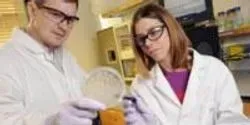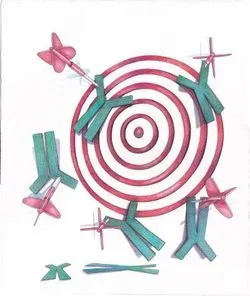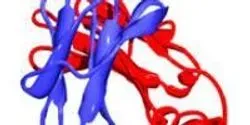Antibodies

Antibodies are specific molecules that can lock onto a particular cellular structure to start, stop or otherwise temper a biological process. Because they are so specific, antibodies are at the forefront of drug discovery. So drug companies want a faster route to step one: identifying which of the millions of possible antibodies will work against molecules that cause disease.

Nanobodies' promise hasn’t been fully realized, because scientists have lacked an efficient way of identifying the nanobodies most closely tuned to their targets

A new class of synthetic platelet-like particles could augment natural blood clotting for the emergency treatment of traumatic injuries – and potentially offer doctors a new option for curbing surgical bleeding and addressing certain blood clotting disorders without the need for transfusions of natural platelets.

Laboratories at The Scripps Research Institute (TSRI) are investigating antibodies to fight Ebola virus, including the three antibodies recently used to treat two American health care workers infected with the Ebola virus.

Scientists at The Scripps Research Institute (TSRI) have demonstrated the power of a new drug discovery technique, which allows them to find—relatively quickly and cheaply—antibodies that have a desired effect on cells. The TSRI scientists used the technique to discover two antibodies that protect human cells from a cold virus.
















